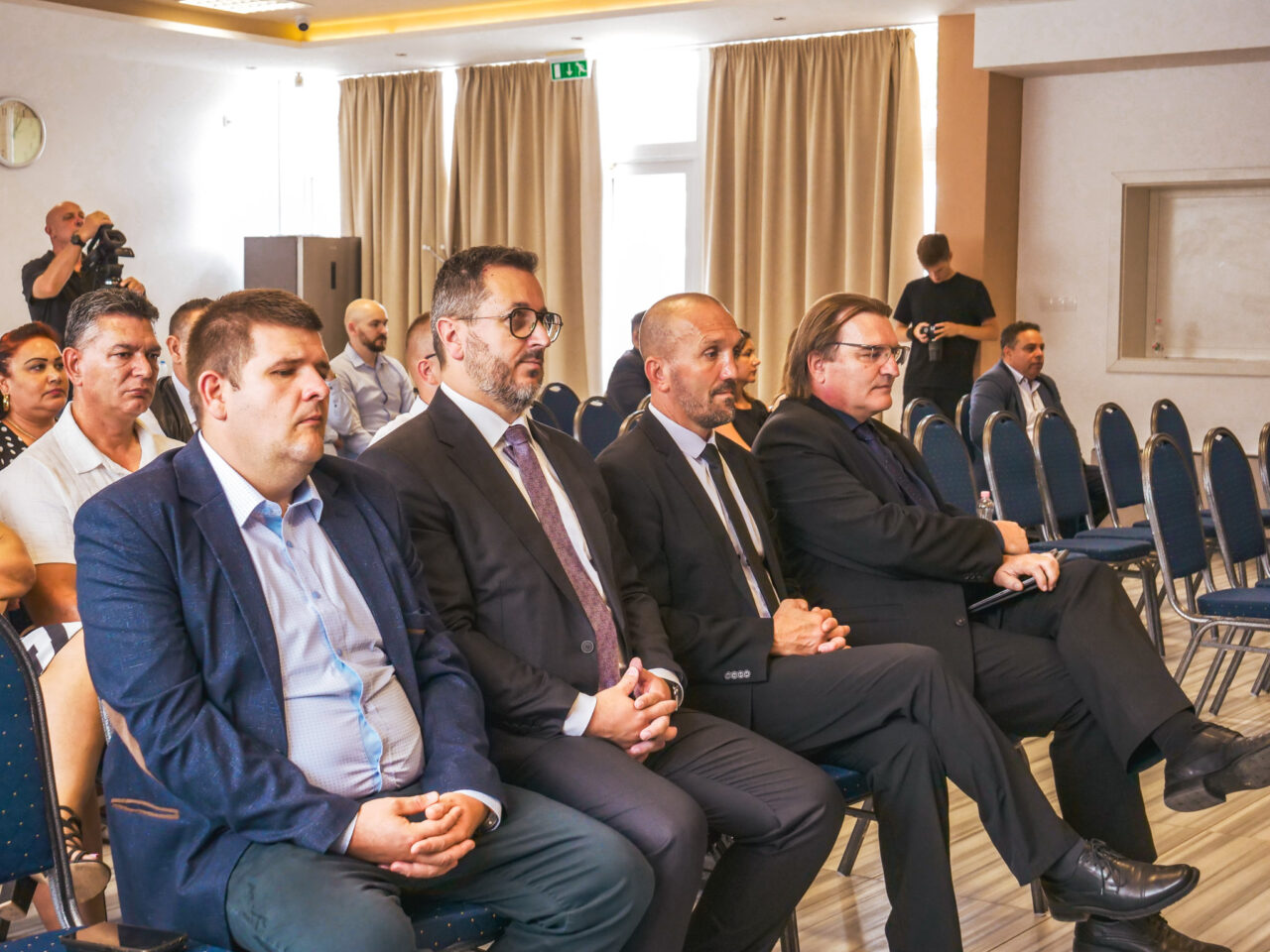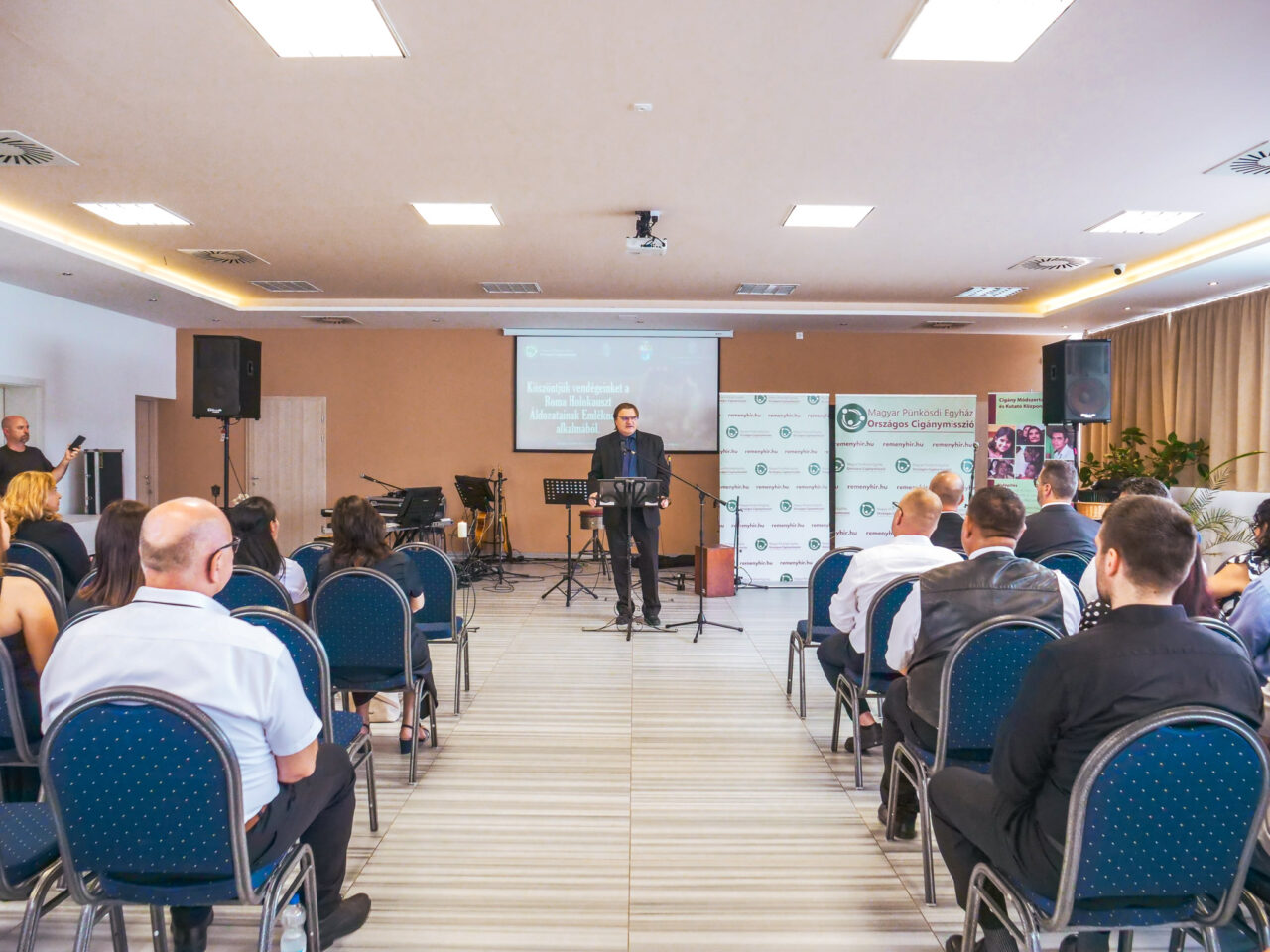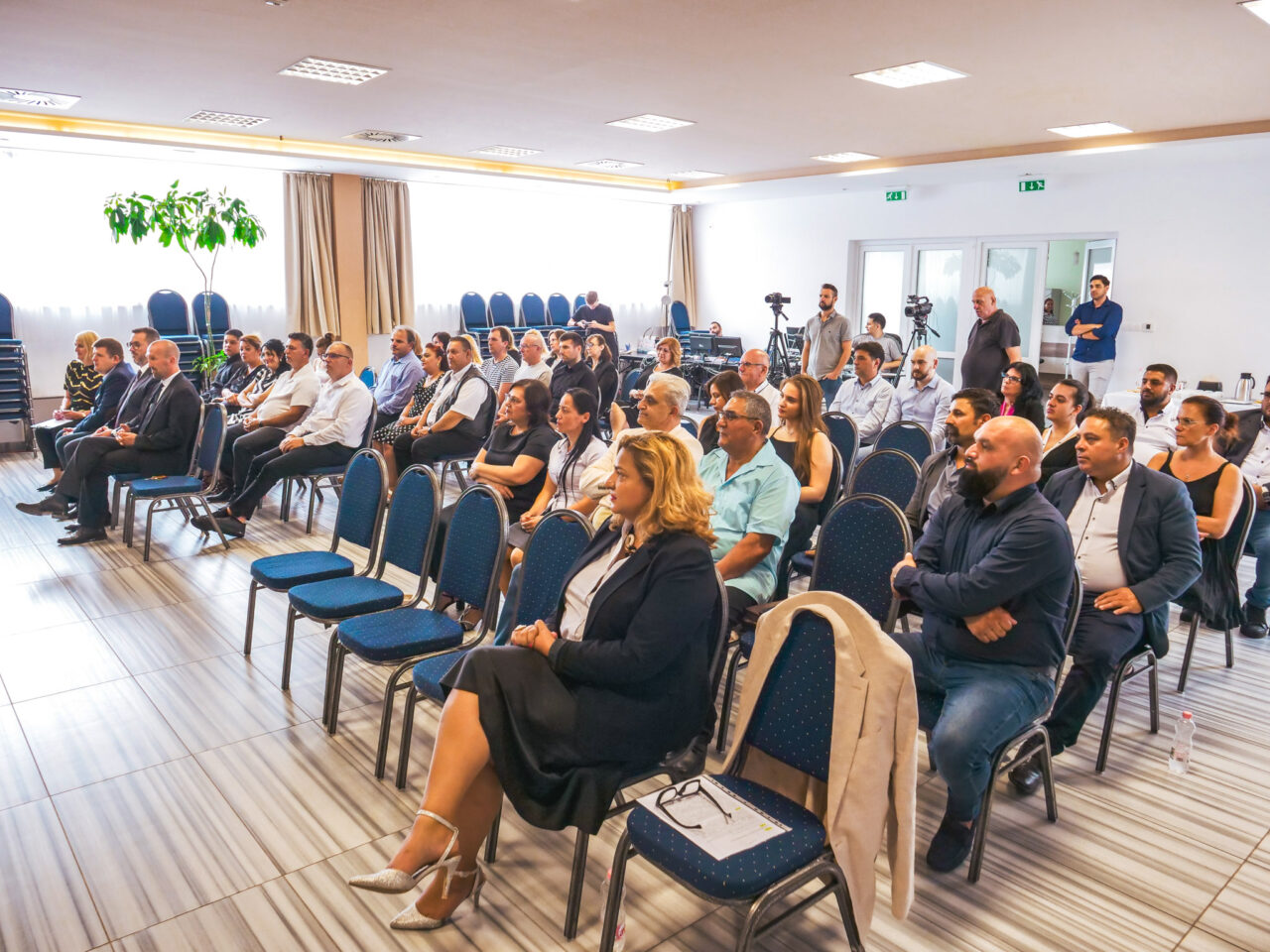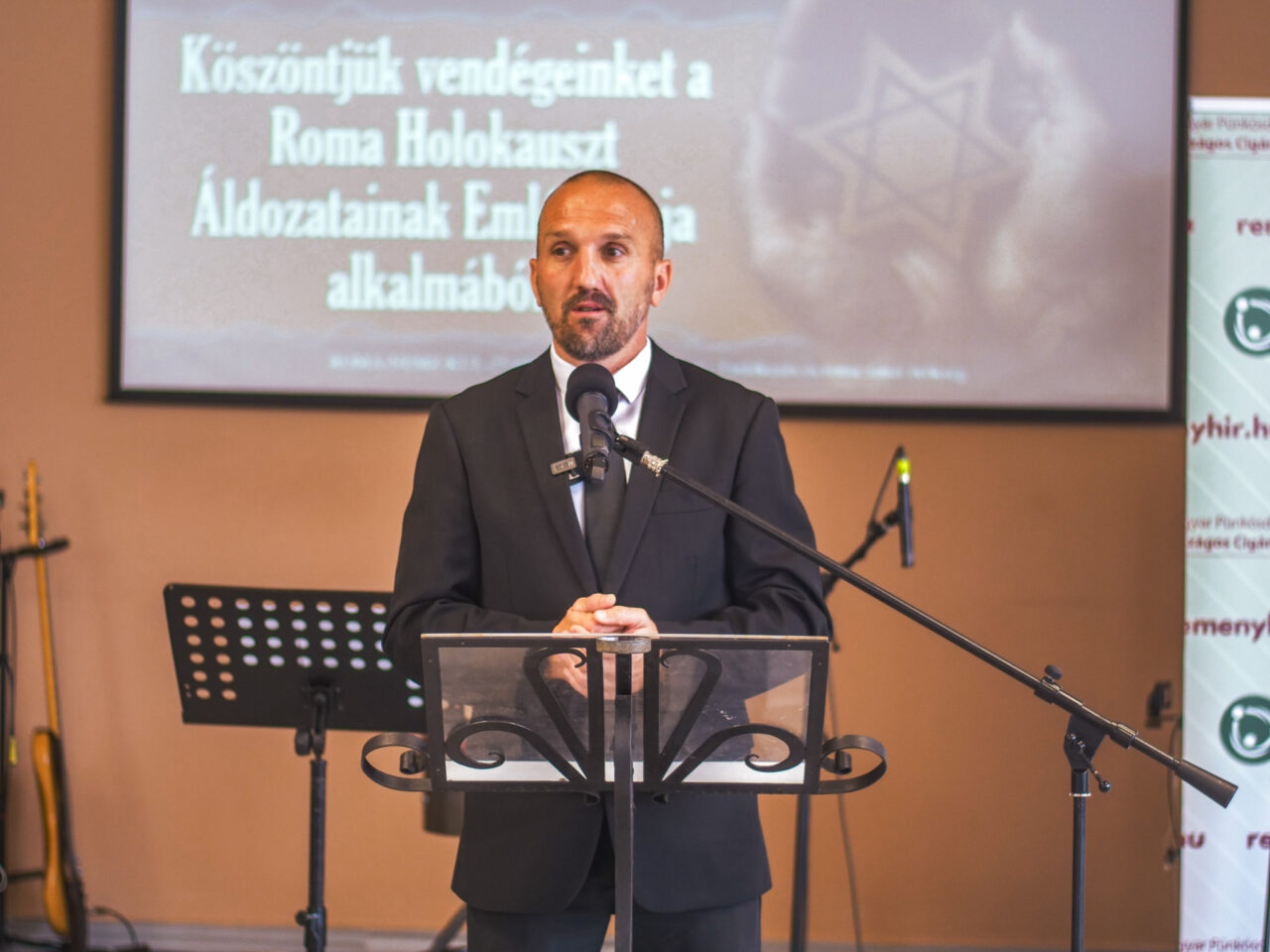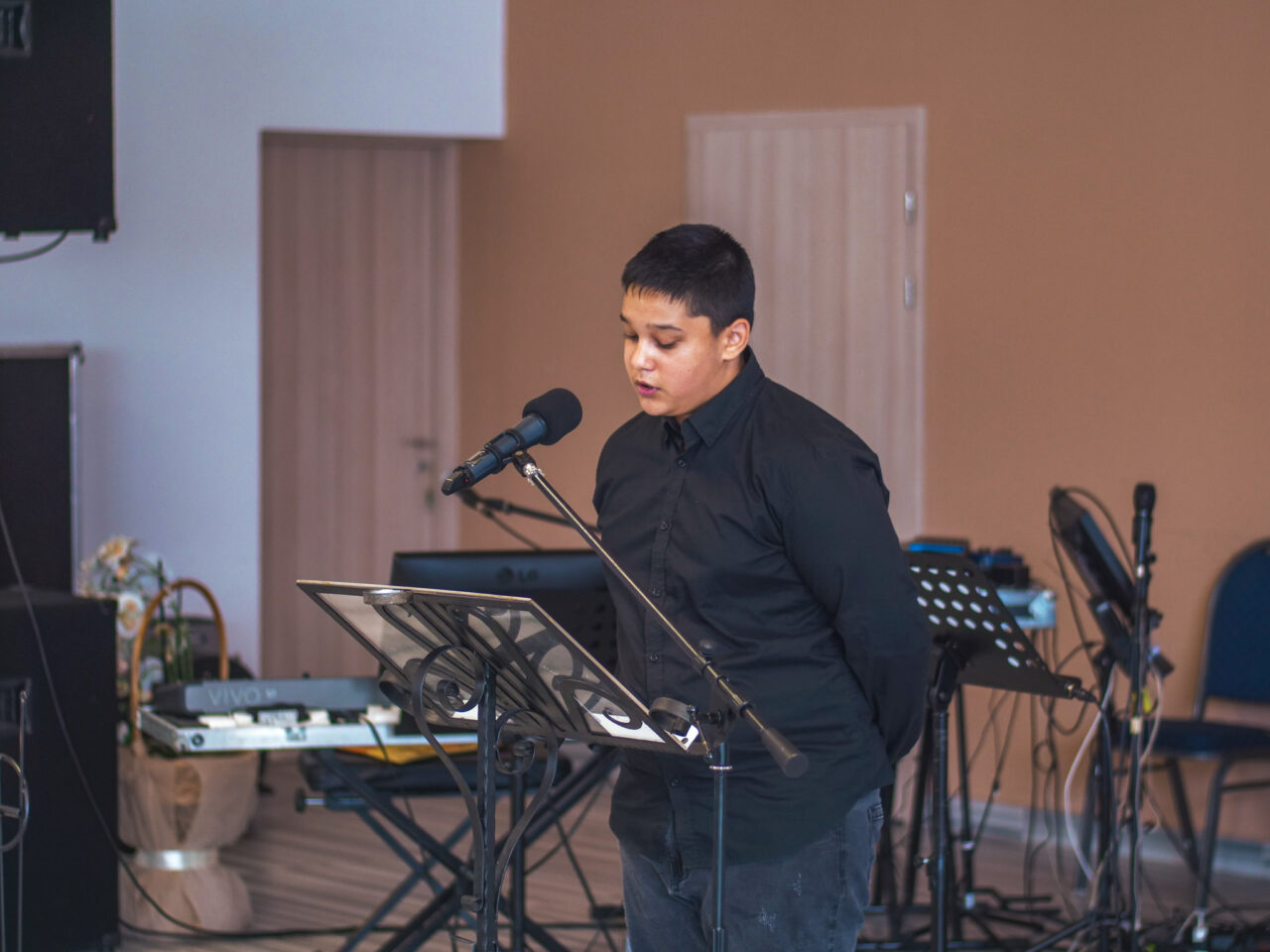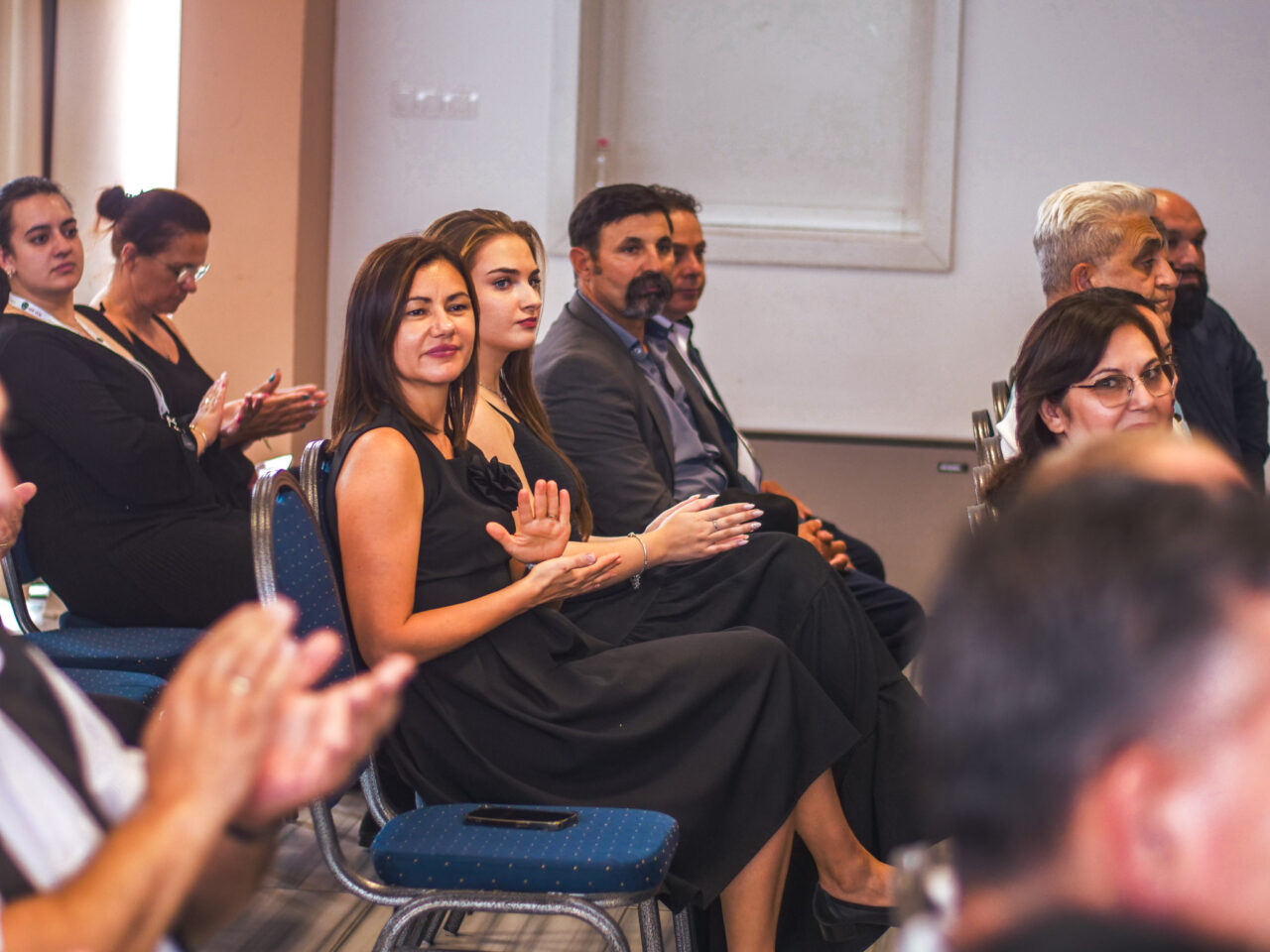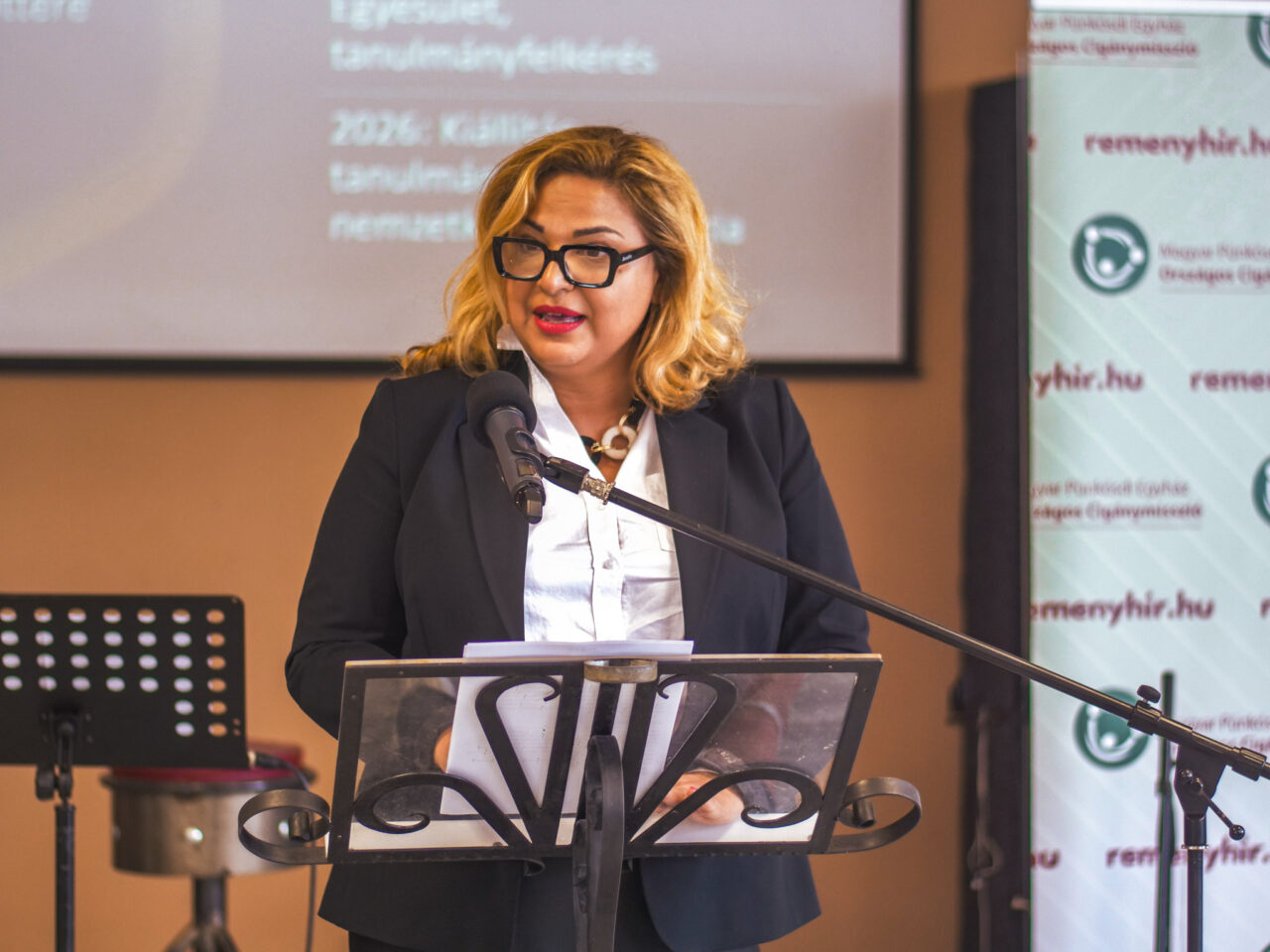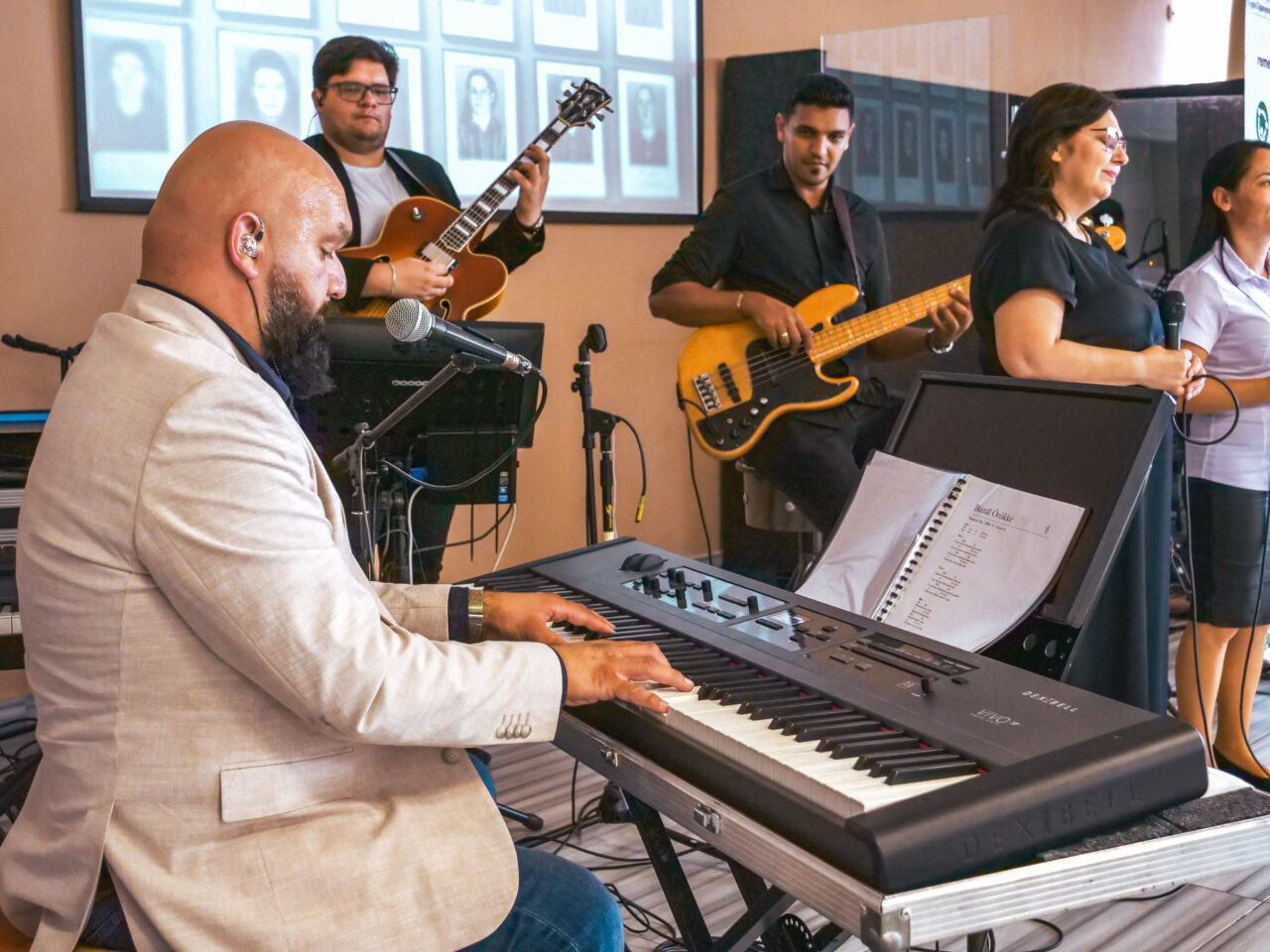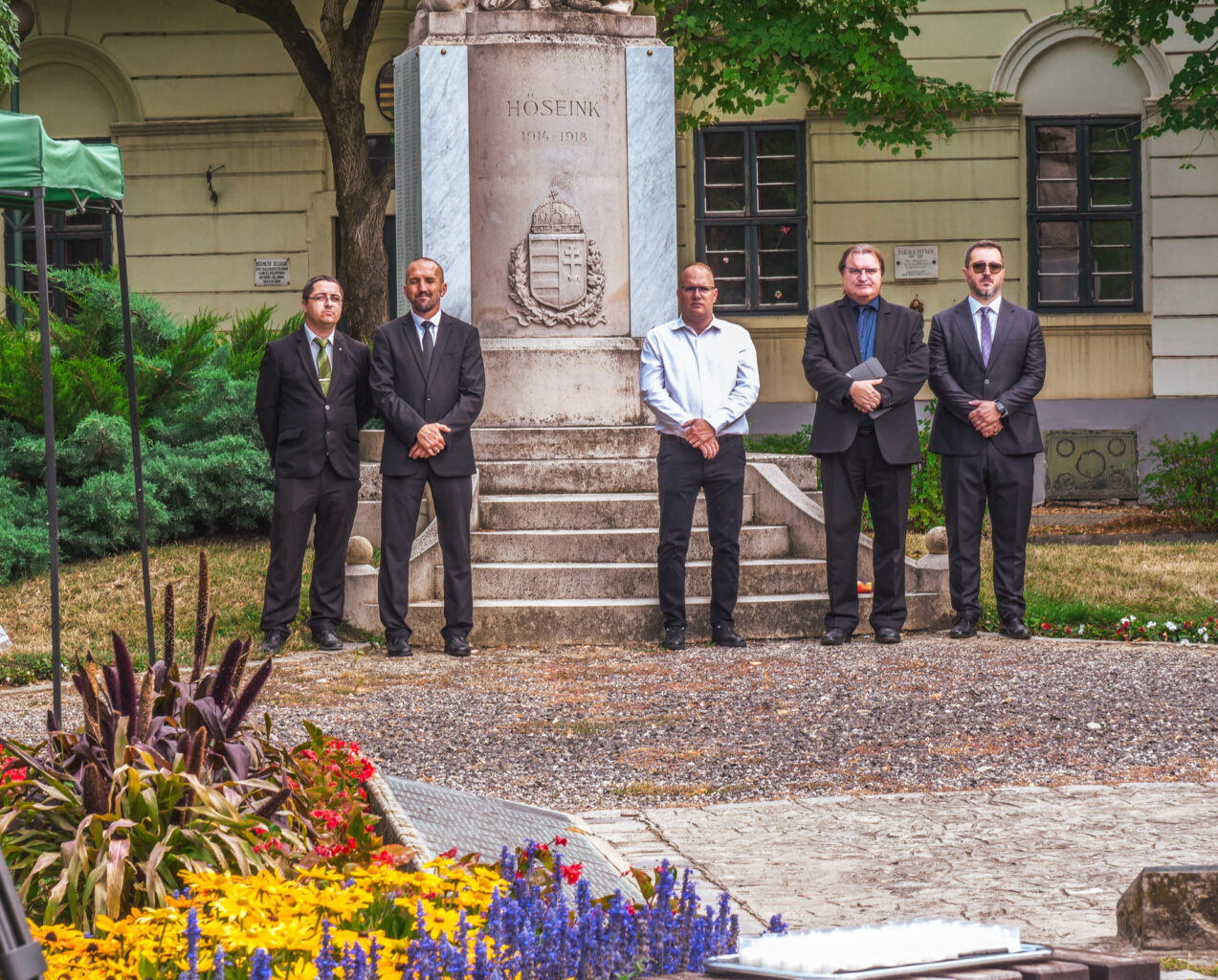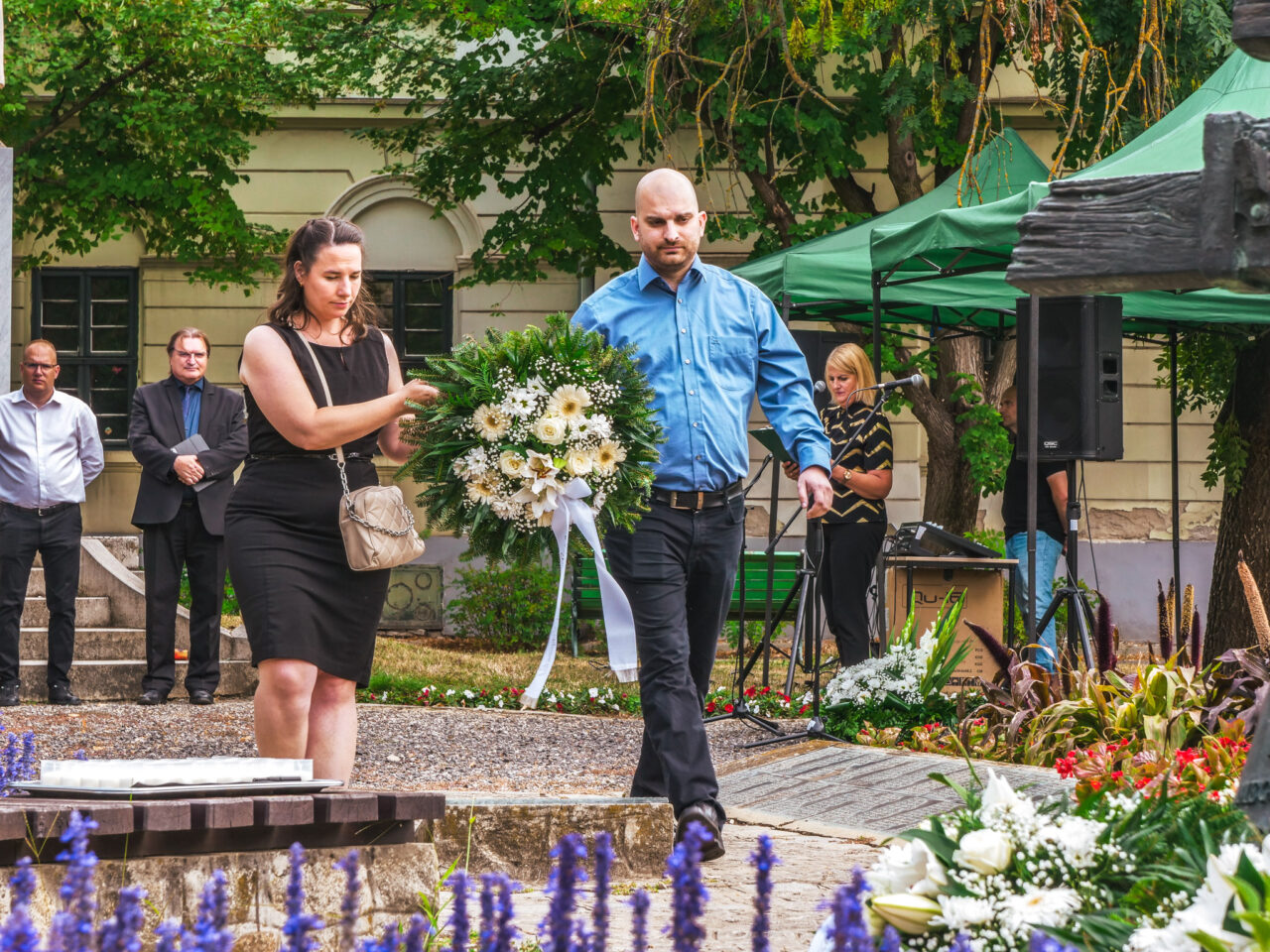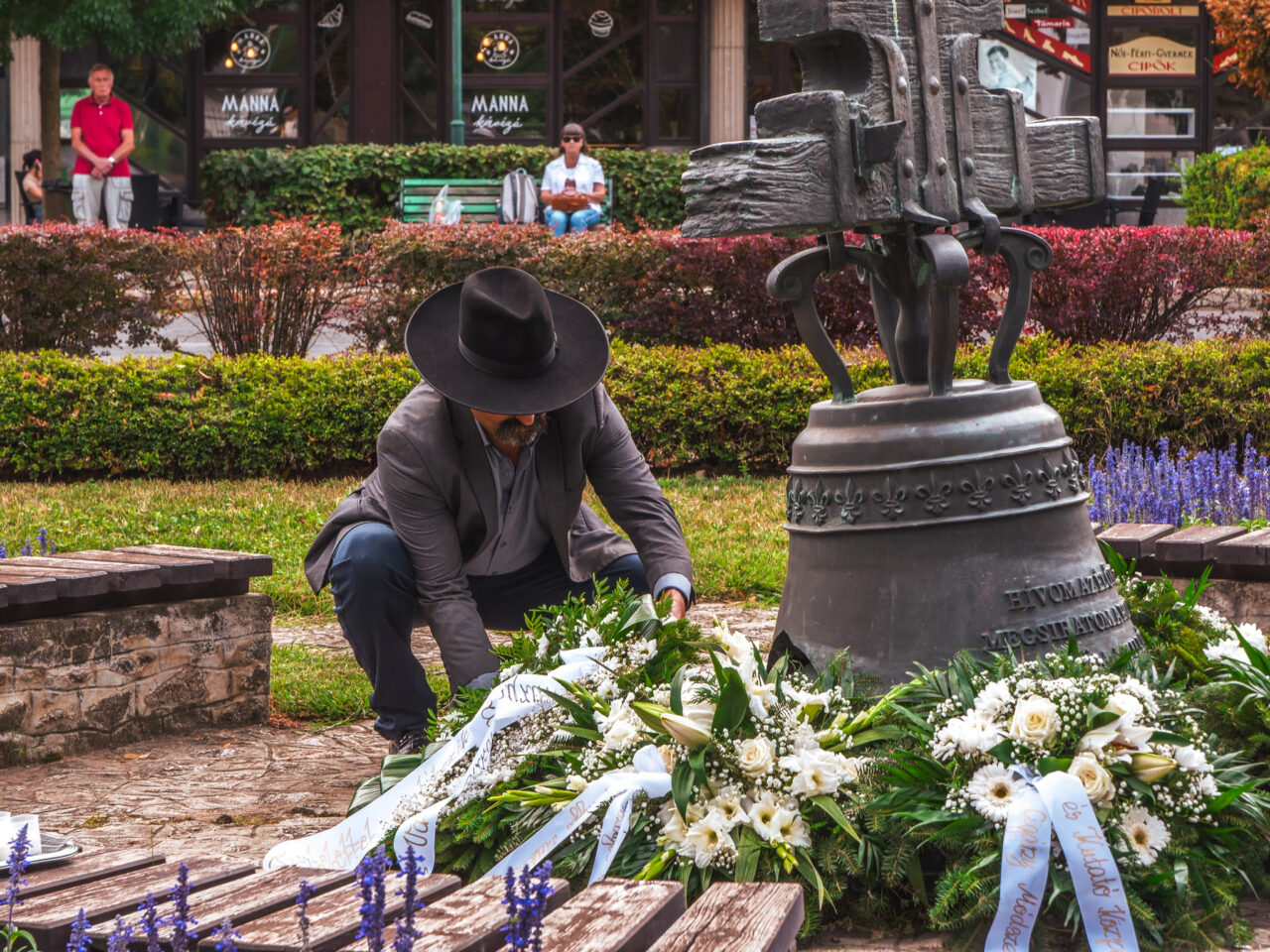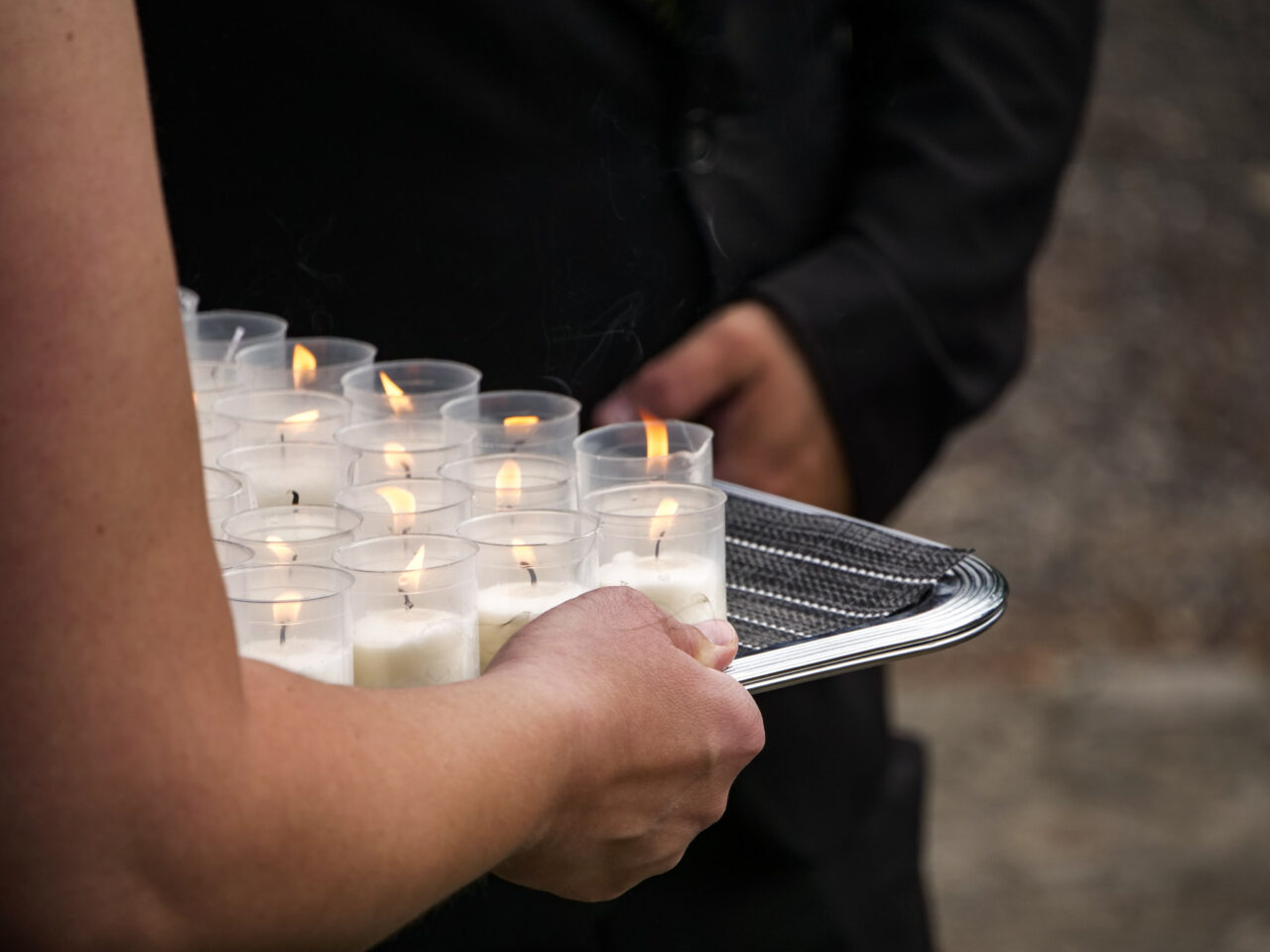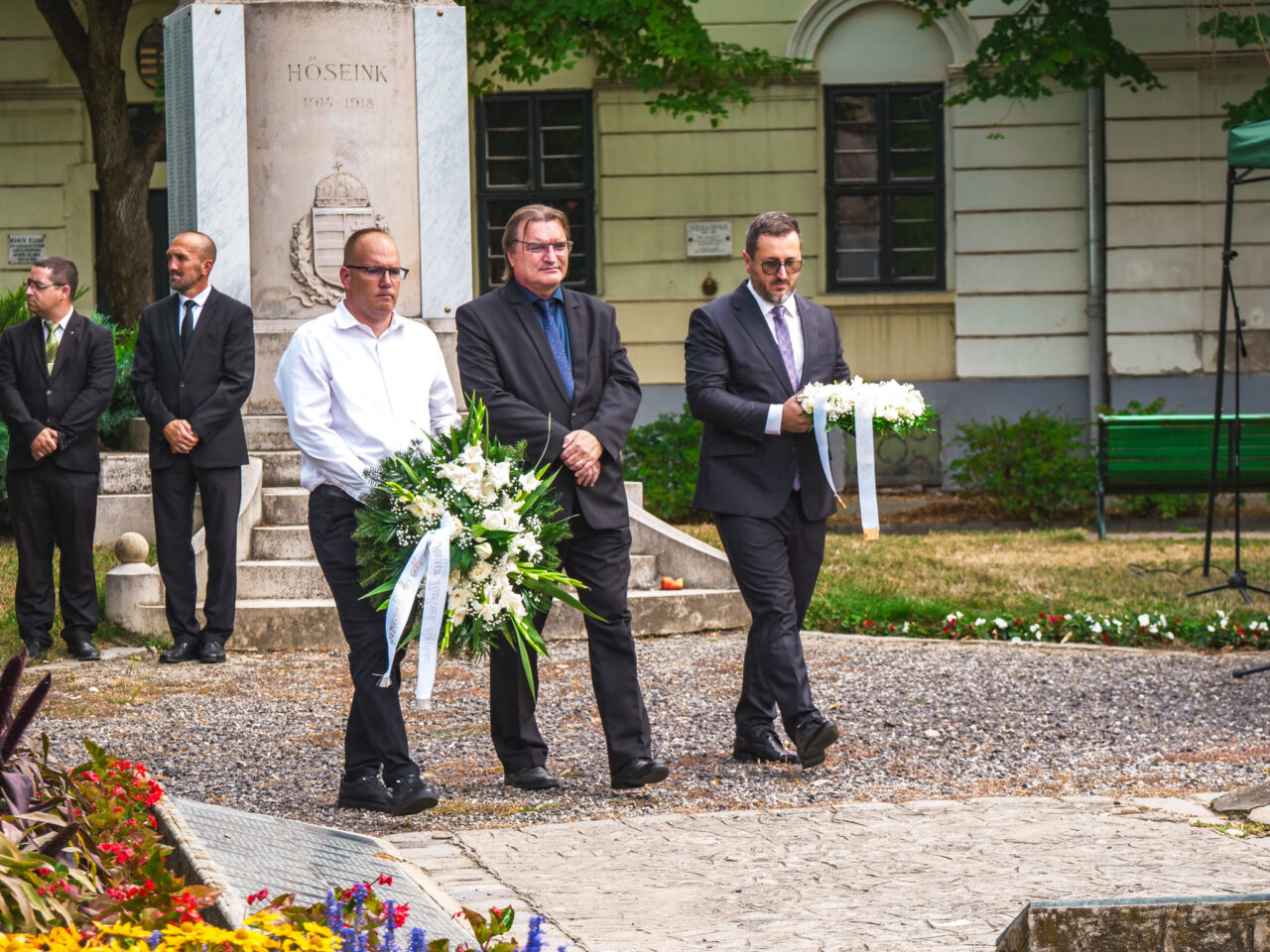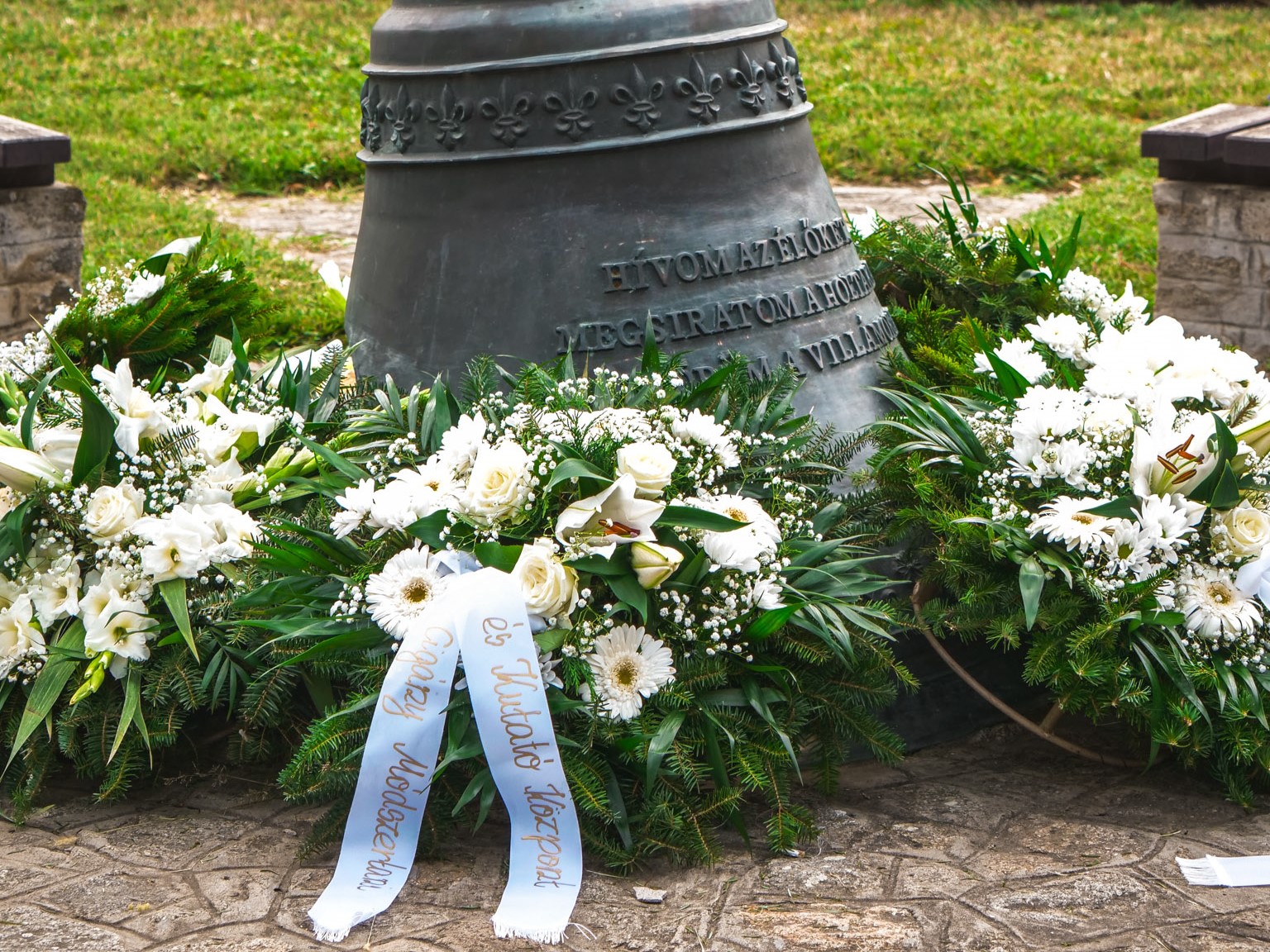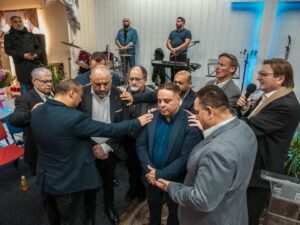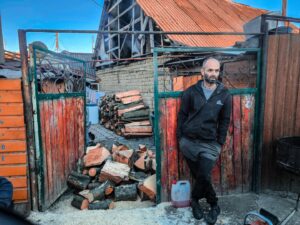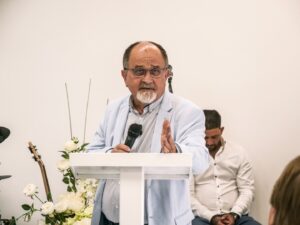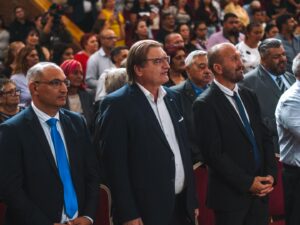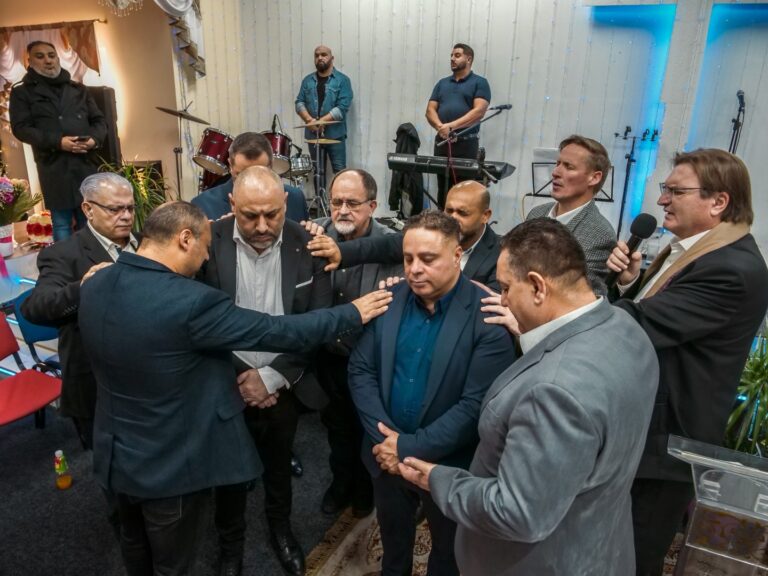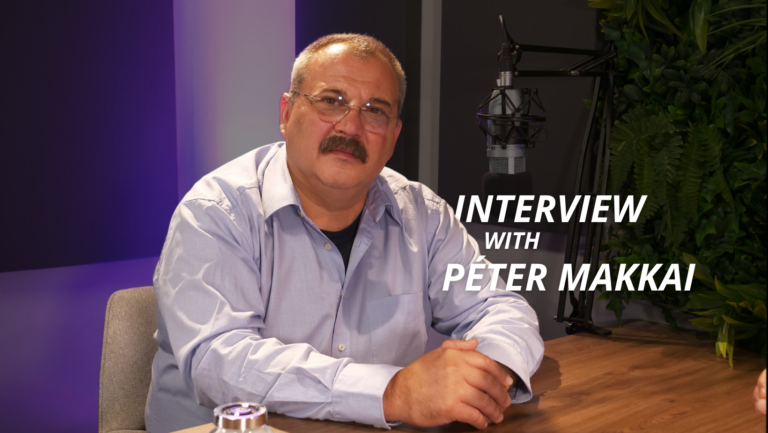On August 4, in honor of the victims of the Roma Holocaust, a dignified commemoration was once again held at the Hungarian Gypsy Missions International’s headquarters in Békés. The event was jointly organized by the Mission, the Municipality of Békés, and the Roma Methodology and Research Center, in order to ensure that through remembrance of this dark chapter of history, the message of the Roma Holocaust continues to live on within today’s communities.
It has now been 81 years since that night of August 2–3, 1944, when more than 3,000 Roma men, women, and children were murdered in the Auschwitz-Birkenau concentration camp. During World War II, tens of thousands fell victim solely because of their origin. Collective remembrance is not only about the past, but also about shaping the future – we build upon the lessons that history teaches us.
The commemoration began with a memorial gathering in the assembly hall of HGMI, where President of HGMI Albert Durkó and Tibor Kálmán, Mayor of Békés, welcomed the participants.
Albert Durkó emphasized his conviction that the Roma people are not a problem, but rather a God-given opportunity for Hungary and for Europe.
“We will remain silent no longer,” he said. “We will not allow the Roma people to appear in history merely as victims. We believe that from pain comes prophecy, from tears comes awakening, and from the outcast will rise builders.”
Mayor Tibor Kálmán, in his speech, highlighted the importance of cooperation with the Roma community, stressing:
“What is good for the Roma will also be good for the city of Békés.” The past must not only be recalled, but learned from—so that together we may build the future. In his words:
“Something beautiful can grow even out of the ashes.”
At the commemoration, Zalán Surman recited a poem, while invited speaker Dr. Klára Gulyás, Chief Curator of Research at the Holocaust Memorial Center, shared her reflections on the current state of research into the memory politics of the Roma Holocaust. As a researcher of Roma heritage, Dr. Gulyás is deeply committed to documenting the history of the Roma Holocaust in Hungary and preserving its memory. In her lecture, she placed the events of the Porajmos in their historical context, highlighting their lasting consequences to this day.
Musical worship was led by the Voices of Hope praise group, who remembered the victims with thanksgiving and reverence toward God. The memorial gathering was closed with a prayer by Tivadar Tóth, National Elder of HGMI.
The event continued with the laying of wreaths and the lighting of candles. Róbert Lakatos performed his own poem, Black Smoke in the Sky, followed by Mayor Tibor Kálmán’s tribute to the victims. Zsolt Németi, Vice President and Pastor of the Pentecostal Church, prayed for God’s blessing upon the Roma people and future generations. Flowers of remembrance were laid by representatives of the Church, the municipality, various institutions, as well as national and local religious and civil organizations. The light of the candles carried a silent yet powerful message: we do not forget, and we will remain silent no longer.
The memory of the Roma Holocaust is not only history but also a prophetic message. The memory of the victims obliges us not only to remember but also to prepare for the awakening in which the Roma people – through God’s special grace – will become a blessing not only for themselves but for all of Europe.
